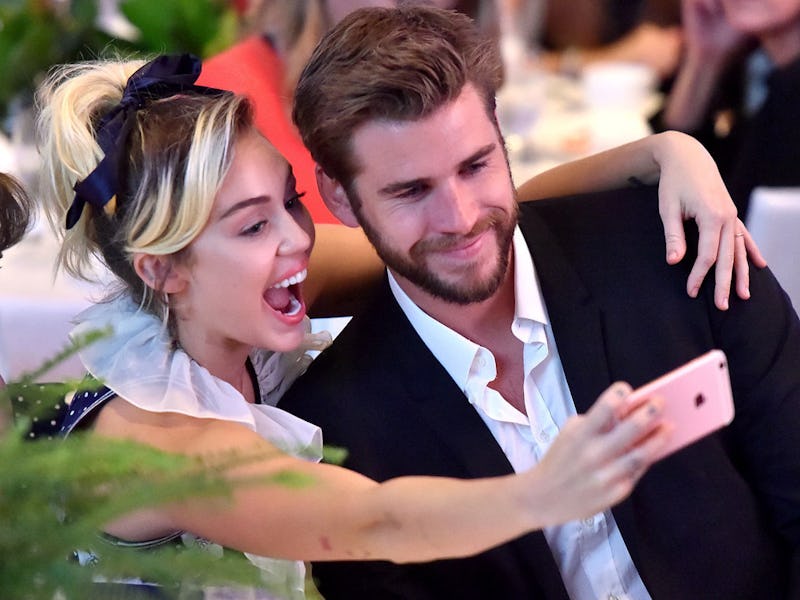Public Health Summit Teaches Teens How to Act Online When Dating
The curriculum at the 8th Annual Breakup Summit included instructions on whether making a meme about your ex is a dick move.

Every sane person agrees that “revenge porn” is reprehensible, but what about subtweeting your ex? Should you screenshot old texts and DMs with your ex and publish them? And what about when you’re in a relationship — if your partner doesn’t want to make it “Facebook official”, do you have the right to be upset? If your boyfriend wants to post selfies of you two together all the time, does it mean they’re happy about dating you, or are they insecure and trying to use you as a social media prop?
At an annual summit in Boston, teens and young adults attend workshops to discuss these pressing questions and analyze how their romantic and sexual relationships play out online from start to finish. Boston, a notably progressive city in many ways, considers damaging social media posts about dating and break-ups a public health issue, so the Summit is hosted by the Boston Public Health Commission. 2017’s 8th Annual Breakup Summit was held in July, hosting hundreds of young people, all of whom had different ideas about what’s okay to post about a partner or an ex-partner.
Though it may seem a little awkward for adults to lecture teens and young people on social media — surely the youngest of us are fluent in social media to an extent olds can’t hope to reach — Boston employed sociologists and experts to explain overarching patterns to kids. One salient point on the matter is that couples who are unhappy tend to post photos of each other more often, perhaps as a way of comforting themselves and proving to their peers that everything’s fine.
Simultaneously, though, there’s an understanding that a relationship isn’t really “official” until the first confirmation of its existence is made on social media. Teens act out what they see high profile young couples doing; Miley Cyrus and Liam Hemsworth announced their rekindled relationship to their fans subtlely on Instagram, and many pop culture reporters unpacked the posts with careful precision. To young people, this stuff matters a great deal, and yet there are no regular answers for behavioral questions. When, for instance, is it appropriate to post a photo of someone you’re dating to Instagram? Can you do it before you’re monogamous?
"Take a bitch swimming on the first date" memes are similar in cruelty to "this is why I have trust issues" memes.
All the topics discussed in Boston this week fold into the same issue: that most people on social media curate their feed to reflect the happiest, most successful, and most carefree version of themselves. Although most of us understand this, we still scroll through our friends’ feeds and accept the information as truth. If our friend is seemingly always out to dinner with their girlfriend, eating trendy food and smiling together, we often assume that’s the full story and that they’re truly as happy as they appear. Teens at the Summit pointed out that this is part of the #relationshipgoals fallacy; that happy couples have somehow succeeded at something that single people haven’t.
Toiell Washington, an intern with the Start Strong program (which facilitated a workshop at the Summit), told The Boston Globe, “I think especially adults think that teen relationships aren’t serious, and therefore they feel like stuff like abuse doesn’t go on in teen relationships, and it actually does.” Our society has immense trouble with discovering and prosecuting emotional and physical domestic abuse, so it stands to reason that teenage abuse between partners, which can happen largely online, is too ephemeral for authorities to fully grasp. What can be done, for instance, if a teen couple breaks up and one of the teens starts sending out their ex’s nude photos via Snapchat? What if they’re simply tearing into their ex on Twitter? Twitter still has a notoriously lenient process as far as removing trolls (specifically Nazis) from its platform, so one teenager saying nasty things about their ex isn’t likely to register on the platform’s radar.
Memes about cheating are pretty popular.
Polarizing questions posed at the summit included whether it’s okay to make a meme or joke online about one’s ex; some kids told facilitators it was okay “if it’s funny”, confirming that making popular content (aka dank memes) can override their partner’s wishes (aka “please don’t post shit about me to your followers”). Washington adds, “If [teens] don’t know how to prevent an unhealthy relationship, then they’re going to take it into adulthood.” Strangely enough, we don’t know what adult romantic relationships will look like when they play out between people who have grown up online. Will millennial habits, from #relationshipgoals photo dumps to subtweeting your exes, follow us all into our thirties and forties? No one can say for sure, but Boston’s public health officials think we need to head off unhealthy behaviors in teens before their online abuse becomes a widespread epidemic.